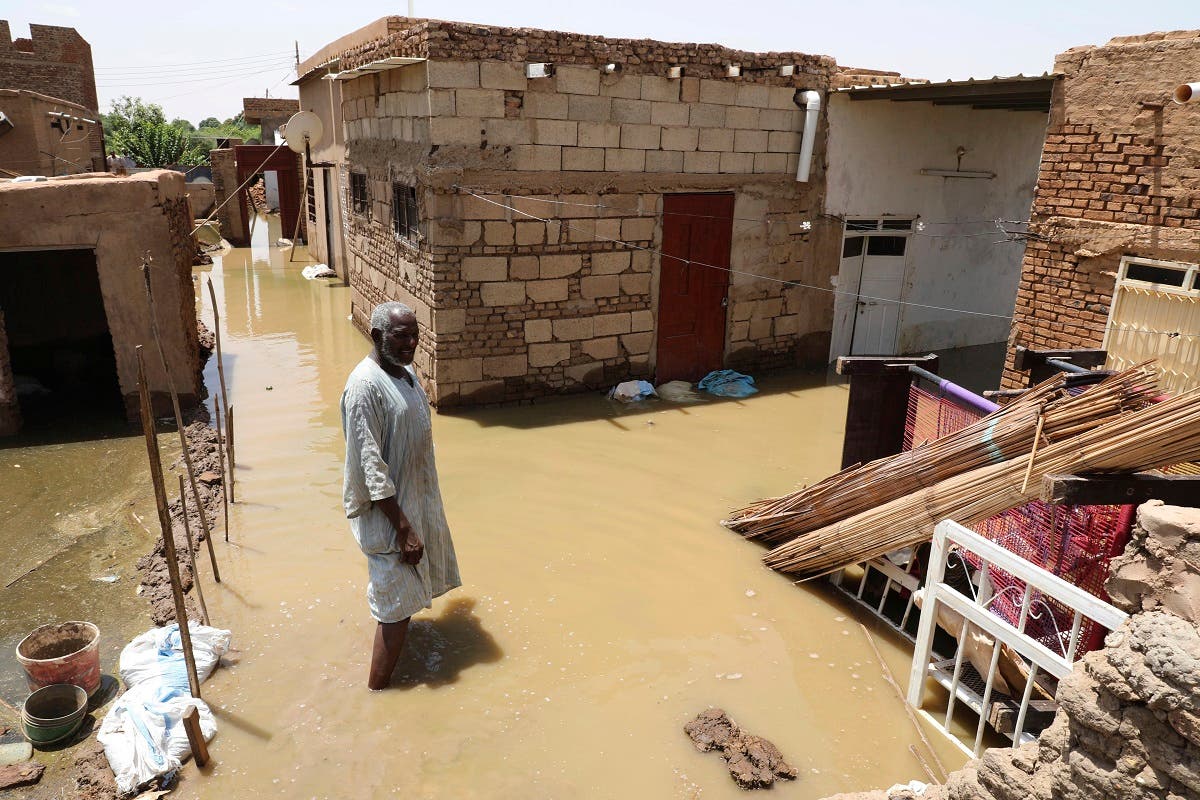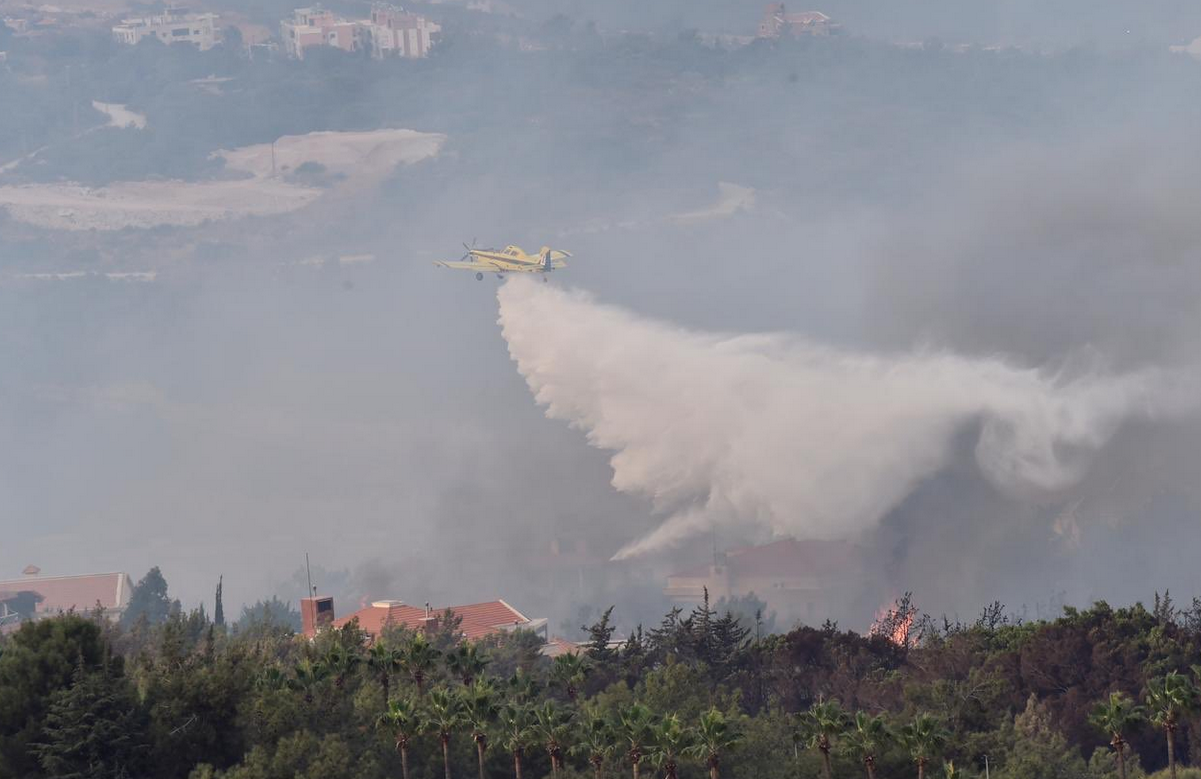Rim Khamis, Thursday 01 October 2020
Arab countries are among the most vulnerable to climate change, according to a series of reports developed by the Arab Forum for Environment and Development (AFED).
Climate change in the Middle East has received renewed attention this year as the region experiences a range of extreme weather. Since freak snowfall and flash flooding in January, there have been forest fires in Syria and Lebanon, record heatwaves in Jordan and Iraq, and deadly flooding in nearby Sudan.
According to the AFED report, the region is expected to face further challenges caused by climate change in the coming years, resulting in an increase in temperatures, drought and a lack of water availability, and a rise in sea levels.
Here is a breakdown of the key issues.
How could climate change impact Arab countries?
Water availability is a serious issue in the Arab world as 18 out of the 22 Arab countries are facing severe water shortages, according to data presented by the World Resources Institute.
The AFED stated that even countries in the Levant region such as Syria, Lebanon, and Palestine, which are more fertile than other regional countries, are at risk of losing their fertility as water supplies including natural aquifers and rivers are progressively deteriorating.
The report also identified the rise of sea levels as a great risk in Arab countries since coastal zones are vulnerable to inundation and erosion, as well as the increased salinity of soil and coastal aquifers. This is a serious threat as a number of major Arab cities are situated in coastal areas. According to the AFED, “sea-level rise of only 1 meter would directly impact more than 41,000 Km² of Arab coastal lands.”
The region is already experiencing an uptick in extreme weather, likely as a consequence of climate change. Lebanon witnessed a series of heatwaves and forest fires in the summer. During the month of July, various Middle Eastern cities including Baghdad, Basra, Damascus as well as the Bekaa Valley recorded their highest temperatures. This month, a serious flood inundated Sudan causing the death of over a hundred people and the displacement of hundreds of thousands. The Sudanese Minister of Labor and Social Development stated that the flood exceeded previous records set in the years 1946 and 1988 and highlighted the fear of rising in the rates of rainfalls and floods.
In the Gulf, heavy rainfalls has inundated roads and disrupted transport, for example in January 2020 when heavy rainfall led to floods in the UAE.
A man passes on the side of a flooded road in the town of Alkadro, about (20 km) north of the capital Khartoum, Sudan. (AP)
Read more: Sudan floods: Nearly 100 deaths, hundreds homeless amid unprecedented rainfall
How should Arab countries address the issue of climate change?
The AFED report highlighted that the impact of climate change is not limited to extreme weather events, but could also influence various sectors including the economy, biodiversity, agriculture and food production, human health, transport, energy, and tourism. It therefore suggests that various state departments should urgently cooperate their response to climate change issues.
According to the US space agency NASA’s proposed solutions for mitigating climate change, addressing this global issue at a national level requires a two-pronged approach. First, it is vital to mitigate climate change by reducing greenhouse gas emissions that are trapping heat and leading to global warming. Second, it is necessary to adapt to a world shaped by climate change, given that even if emissions were to stop today, we will still be dealing with global warming for decades to come.
Cypriot helicopters put out forest fires in Lebanon. (Twitter)
Are Arab countries prioritizing climate change?
Despite the risks of climate change, experts have warned that some countries in the region are not prioritizing environmental concerns.
Professor Simon Dubois, a geoscientist specializing in the management of natural resources and the environment at the CNRS in Paris, told Al Arabiya English that climate change can be difficult to prioritize because its effects can seem abstract and far off.
“In many cases the change is not yet perceptible or obvious on a day to day basis and could take years to manifest, which makes it harder for governments and key actors to take the issue seriously and act accordingly,” he said. In some Arab countries, political instability and conflict has meant that environmental concerns are not a top priority, he added.
According to Dubois, sterner efforts need to be devoted to addressing the issue of climate change in Arab countries to increase their resilience to extreme weather events. Possible strategies include developing adequate water and energy management practices.
Dubois also emphasized the importance of public awareness and research to develop an improved understanding of the direct and indirect impacts of climate change on various sectors. https://platform.twitter.com/embed/index.html?creatorScreenName=AlArabiya_Eng&dnt=false&embedId=twitter-widget-3&frame=false&hideCard=false&hideThread=false&id=1236517086844813312&lang=en&origin=https%3A%2F%2Fenglish.alarabiya.net%2Fen%2FNews%2Fmiddle-east%2F2020%2F10%2F01%2FClimate-change-threatens-Middle-East-says-report-amid-extreme-weather&partner=tweetdeck&siteScreenName=AlArabiya_Eng&theme=light&widgetsVersion=ed20a2b%3A1601588405575&width=550px
How are some Arab countries addressing the issue of climate change?
Several nations in the Arab world have begun developing and implementing environmental strategies and measures. According to the World Bank, various GCC countries including the UAE, Bahrain, Kuwait, Qatar and Saudi Arabia have invested in desalination to adapt to the issue of water scarcity.
However, the Global Citizen warned that desalination plants are not environmentally sustainable unless they are powered by renewable energy sources, adding that Saudi Arabia presents an example of a country that is pushing to use solar energy to power these plants.
The UAE is actively addressing the issue of climate change by developing various programs and initiatives. In 2016, the government created the UAE Council for Climate Change and Environment, currently chaired by Dr. Thani bin Ahmed Al Zeyoudi, Minister of Climate Change and Environment.
The UAE government communicated on its official portal that it is increasing the share of renewable energy sources in the power production, through the development of large-scale renewable energy and nuclear projects to mitigate climate change. It is also developing a carbon capture and storage project in Abu Dhabi to capture carbon dioxide and store it safely underground to avoid it being released into the atmosphere.
